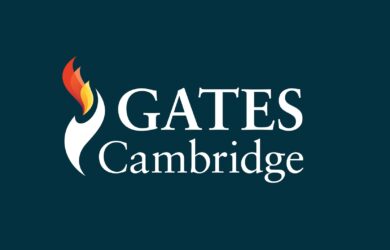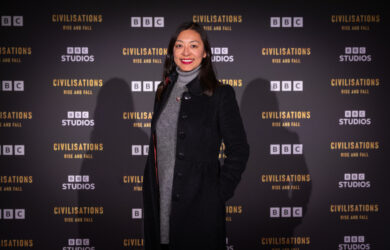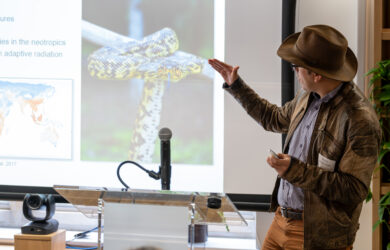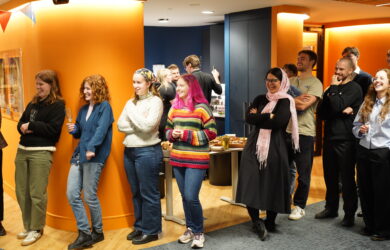Dr Trevor Ellison grew up with a realisation of the importance of medicine from an early age and this has spurred to set up an international surgery exchange programme to improve treatment around the world.
He hopes the MBA in management which he is studying at Cambridge this year, funded by a Gates scholarship, will help him achieve his ambitions.
Dr Ellison had an interest in surgery from childhood. His oldest brother suffers from cerebral palsy and his family adopted two young disabled Korean girls.
“I grew up seeing my brother relying on other people and unable to give anything back in return. It influenced me to go into the medical profession so that I could do so,” he says.
One of the girls was adopted at the age of two with cerebral palsy. Now aged 24. she needs 24-hour care and is wheelchair bound. Dr Ellison’s other sister has learning difficulties. Ellison travelled with his mother to Seoul to bring her back to the US and adopt her.
Dr Ellison was born near Pittsburgh, but his family moved around the country during his childhood. His father, the first person in the family to go to university, was working in the family steel business until the industry collapsed in the 1970s. He became a consultant, advising failing businesses, and. As a result, had to follow the work. Before high school Ellison had moved five or six times.
Up to the age of 10, he was home educated by his mother. He says his parents ensured that he did not miss out on a social life or on extracurricular activities. At the time they were living outside Boston and Ellison learnt violin. He also did ballet workshops and modelling and played soccer and baseball with friends.
His mother had studied English literature and had a passion for children’s literature, which meant she found it fairly easy to teach literacy. “Because she loved reading to us it was a natural next step to teach us to read,” says Dr Ellison.
Because the family moved around so much Ellison said he always felt a little bit like an outsider. Nevertheless, once at high school he did a lot of extracurricular activities, from lacrosse to show jumping. He had learned how to ride through a friend in California. During high school, he improved his equestrian skills at summer school at Culver Military Academy where he was in the horse troop.
Dr Ellison says he knew from an early age what he wanted to do with his life. “From the age of 12 I knew I wanted to be a doctor,” he says. “And I thought all doctors were surgeons. My brother underwent many hours of orthopaedic surgery so I got a lot of exposure to surgeons. I knew they were helping him to get better. His being able to walk made a big difference to his life and to ours.”
At the end of high school, however, he was worried about the hours necessary to become a doctor. In his first year at Brigham Young University, he was doing a lot of riding and decided to take a course in animal science in order to study to become a veterinarian. He didn’t enjoy it and soon switched to medicine.
During his time at Brigham Young, he spent a semester in Jerusalem in 1999 studying the Old and New Testament. As a member of the Church of Jesus Christ of Latter-Day Saints, it was important for him to do some missionary work and so he went on a mission from 1995-1997 in northern Spain. He graduated from university in 2001 and went to medical school at Johns Hopkins.
From there he went into general surgery. He says he was unsure at the time what his specialism should be, but is now confident that surgical oncology is the field he is most interested in, particularly liver and pancreatic cancer because Johns Hopkins has a specialist centre in these areas.
He still has two years of his general surgery residency to go, but has decided to take time out to study economics and policy to widen his knowledge about healthcare and its delivery, which he plans to research throughout his career.
He had already completed a year of a PhD in economics and policy when the opportunity to study at Cambridge came up. A family friend had studied at Cambridge and recommended it. He will be based at Gonville and Caius, but will live outside the College with his wife and one-year-old son.
He says he hopes to use the knowledge he gathers doing the MBA in the creation of the exchange programme. It is based on a programme that existed at Johns Hopkins until recently which allowed surgery students to go to Oxford or Dublin for six months in their fourth year. The programme ended two years ago because of changes to the surgery qualifications which meant the number of hours students could work in a week decreased. This meant they could not spare six months abroad to get through the number of cases they needed to qualify.
Dr Ellison wants students to be allowed just one or two months to work abroad before they qualify and approached his chair of surgery who was interested in the idea. He hopes eventually that the model he creates can be used in other universities and create lasting relationships between universities in wealthy areas and developing countries in need of top class surgeons.
“Studies show lots of students are interested in international service these days,” he says. “The problem is you get into a residency programme and you don’t have much time off or money. I think a lot of people would go if there was the facility to do so,” says Dr Ellison.












